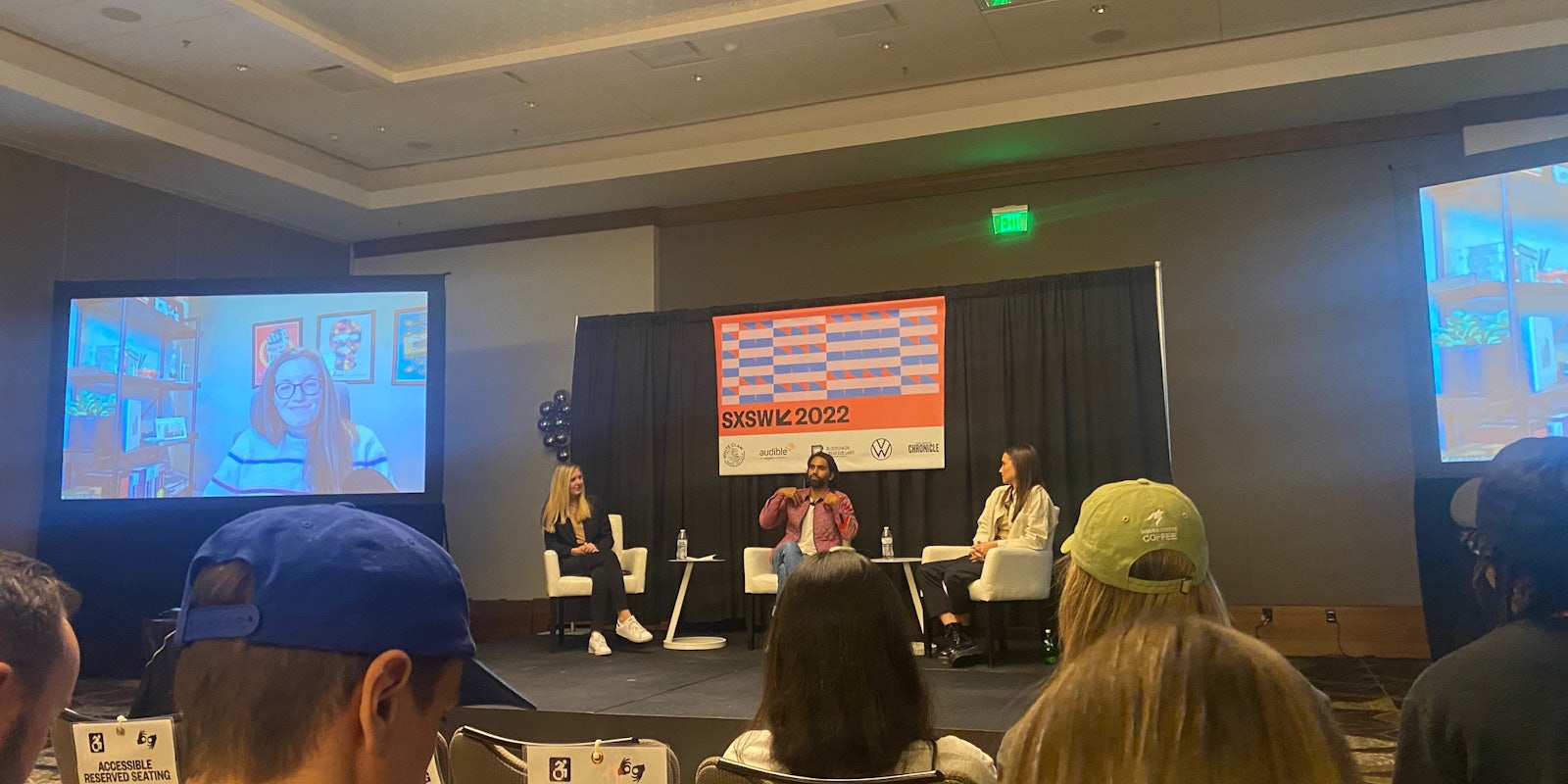A room full of creators, agents, social media stars, and brand reps gathered at SXSW today to listen to a panel of well-known creator economy experts.
The roster included creator economy reporter Kaya Yurieff of The Information; Lauren Zoltick, head of social and partnerships at stock media company Storyblocks; Samir Chaudry, YouTuber and co-founder of creator economy newsletter The Publish Press; and filmmaker and influencer Shannon Beveridge.
The panel aimed to discuss the “top mistakes brands make when working with influencers, how to boost diversity and pay transparency, and how creators are dealing with burnout,” Yurieff told the Daily Dot over email ahead of the event.
It also covered how “essential mutual respect and trust is between creators and brands to have successful integrations, from creative concepting to pay transparency,” Zoltick told the Daily Dot prior to the panel.
The panel identified red flags for brand-creator partnerships.
“When it’s very obvious they don’t watch our content, I think that’s a big red flag,” Chaudry said at the event, “For all the brands out there, being authentic fans of the creators that you’re working with, or being a part of the community, or just being very aware of the type of content they make, will make for a more authentic integration.”
“When a brand doesn’t trust that I know my audience,” Beveridge added. “So when you come back with like a creative plan for whatever the ad is and they’re like no, you’re kind of like: well, I’ve spent ten years cultivating this group of people who know me and I know them.”
“Brand partnerships are by far the top way most creators make money. But even though brand deals have been happening for well over a decade, it’s not always an effective—or positive—experience for either the advertiser or the creator,” Yurieff told the Daily Dot.
On the brand side of things, Zoltick explained how important it is for companies and creators to form healthy business relationships.
“The creator economy is growing rapidly; it’s become essential for most brands to engage with it,” Zoltick told the Daily Dot. “It’s also maturing. What was once considered a hobby, is now a career. What was once a single person crafting a YouTube channel, is now often a team. So, it is crucial for brands and creators to also develop how they work together.”
Zoltick said she thinks brands have a responsibility to hire a diverse set of talent and not low-ball creators on their deals.
“Where brands can really help is 1) pay creators 2) pay them well, fairly, equitably, all those things 3) hire a diverse set of creators without tokenizing them,” Zoltick explained.
The creators on the panel discussed the importance of having a manager to let you know if you’re getting a fair deal, and talking to your peers about what they’re earning.
Chaudry recommended that creators analyze the costs of content production and distribution to figure out how much you need to charge brands in order to make money: “If the brands weren’t interested in paying that rate that we had come up for ourselves, then we weren’t talking with the right brands.”
He also explained that when you post content online, there’s no gatekeepers to tell you what to do, but that also means there’s no one to give you permission to take a break.
“Although it doesn’t require permission to upload, there’s no boss that’s like hey, you can take two weeks off. That’s where it becomes terrifying, you have this fear of irrelevancy,” Chaudry said.
“I always joke that I have a terrible boss, ‘cause that’s me, I’m the boss…As far as burnout goes I’d say that I’ve been scorched,” Beveridge said. “I think finding a way that’s good for my brain and also my audience is what I do now.”
Chaudry gave some closing advice on burnout: don’t give a lot of creative output with no direction. He recommended journaling out your goals and production methods: “Process is really important.”


